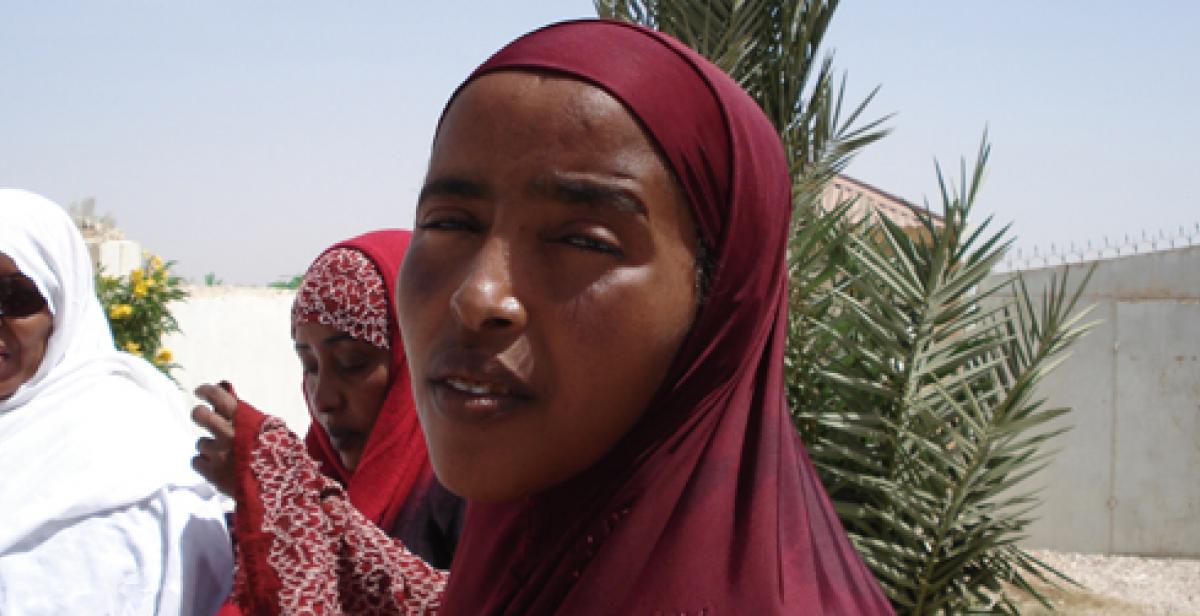“If you tell me my wife’s HIV positive, I’ll kill her! And I’m going to kill all of you people who are working at Talowadag, because you are the organisation who are helping people to spread HIV in our town!”
This threat from an armed man was an exceptional challenge for the Progressio development worker and the Director at Talowadag, an organisation supporting people living with HIV in Somaliland. And yet this attitude of discrimination towards people with HIV, even among family members, is far from unusual – particularly towards women.
Talowadag responded to this angry husband with counselling. They told him that although his wife may have been receiving support from them because she had been sent from one of the referral hospitals, they didn’t carry out HIV tests.
His concern was that she would have made him HIV-positive, yet Talowadag told him that even if she was HIV-positive, he could still be negative.
He was assured that being HIV-positive wasn’t something of which to be afraid or ashamed. He would be able to lead a healthy life – just like the other 280 people living with HIV, and their families, helped by Talowadag.
The organisation provides those infected with the virus counselling and practical support, such as basic nutritional food supplements, and access to a micro-credit scheme.
The man tested negative and with post-test counselling he realised that he and his wife could continue living a healthy life together. With a new outlook on Talowadag and HIV victims, he agreed that his wife could continue coming to the organisation for support and treatment.
Talowadag has many similar stories to tell – like the woman thrown out of her house with 3-month-old twins, or even the man who said he had enough money, food and shelter, but just wanted to join a support group “to be with others like me.”
“Most clients who come to us are women, and are poor and vulnerable – that’s why they come. There are also a lot of misconceptions about HIV. But whether rich or poor, counselling is the answer,” says Ali Abdi, Progressio’s development worker with Talowadag.
Progressio has worked with the organisation since its early days. Set up three years ago after a woman was arrested and imprisoned for disclosing her HIV-positive status, it has grown into the main support organisation for people with HIV in Somaliland.
The Director, Guleid Abdi Osman, is full of ideas for taking the organisation further – including reaching out to people in other regions of Somaliland beyond Hargeisa, particularly to the Red Sea port of Berbera where HIV prevalence has dramatically increased from 0.89% in 1999 to 2.7% in 2007.
There is much need for Talowadag’s work. Eight hundred people are registered HIV-positive in Somaliland, but the continued issue of stigma, and the overall estimated prevalence of 1.7%, means that there are likely to be many more who have yet to find out their status.
As well as the care and support provided by Talowadag, much more work on HIV prevention, stigma and advocacy is needed too. Through the work of Ali and the three other development workers in Somaliland working on HIV prevention and care, Progressio will continue to respond to these needs.
Article by Caroline Pankhurst, formerly Progressio’s Programme Funding Manager. She visited Somaliland in February 2010. Progressio is grateful to UNIFEM for their support of our work with Talowadag.
Photo: Amran Hassan Ahmed is a support group leader for Talowadag (© Progressio/Joanne Green)



